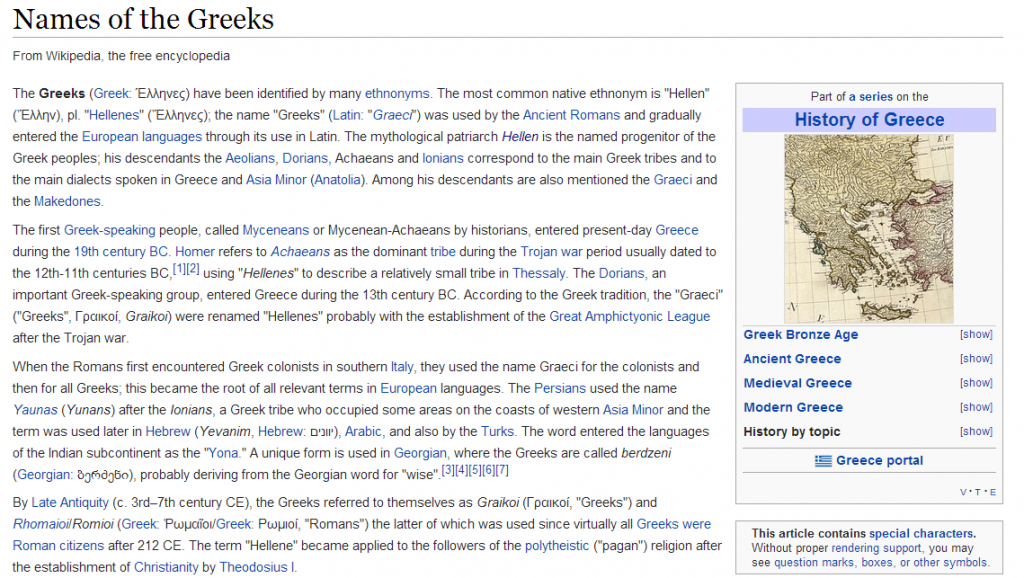
The ancient Greeks seem to have referred to themselves as “Hellenes.” It has long puzzled me where the term “Greek” came from. This morning I decided it would be pretty easy to run it down. And so it was.
The short answer to this question is that “Greek” comes from one name for many of the tribes in the area and predates the adoption of the term, “Hellenes.”

So when the Romans ran into the Greeks who were colonizing southern Italy, they, the Romans, used their word, “Graeci,” to name them. This term was pretty much the root term for subsequent European words to name them.
In the meantime, there was a famous and important leader named Hellen (a guy and NOT Helen of Troy) whose name became the one that the Greeks used for themselves.

There you are.
I was reading an article this morning online and was puzzled by the verb subject agreement in it:
Some of his finest fiction—including the stories “The South,” “The Dead Man,” and “The Intruder,” to name just a few—was kindled by the dagger.
With a little poking around, I found a reasonable explanation.
Some indefinite pronouns — such as all, some — are singular or plural depending on what they’re referring to. (Is the thing referred to countable or not?) Be careful choosing a verb to accompany such pronouns from Subject-Verb Agreement
Kellers’ cancer writing shows how broken journalism has become – Salon.com
Broken because facts are not checked.
American Independence Myths: Lies May Comfort, But Facts Matter | New Republic
Speaking of facts.
The Daggers of Jorge Luis Borges by Michael Greenberg | The New York Review of
This is a fascinating article about Borges.
Retracing Mao Zedong’s Long March—by Motorcycle – Adam Century – The Atlantic
Reaction of Chinese people that that this author runs into are one of the best parts of this interesting story.
SPIEGEL Interview with Iraqi Foreign Minister Hoshyar Zebari – SPIEGEL ONLINE
Wow. Some observations from a player in Iraq. Not necessarily reliable, but still interesting.



